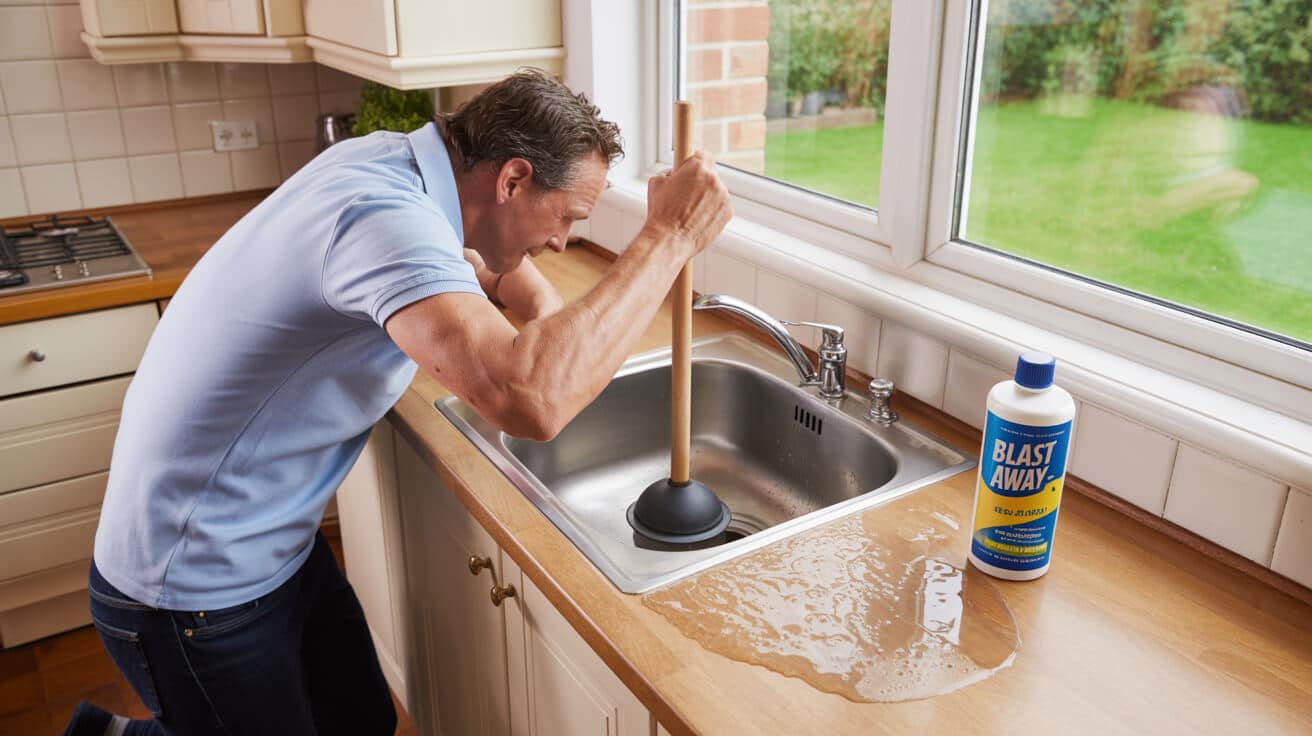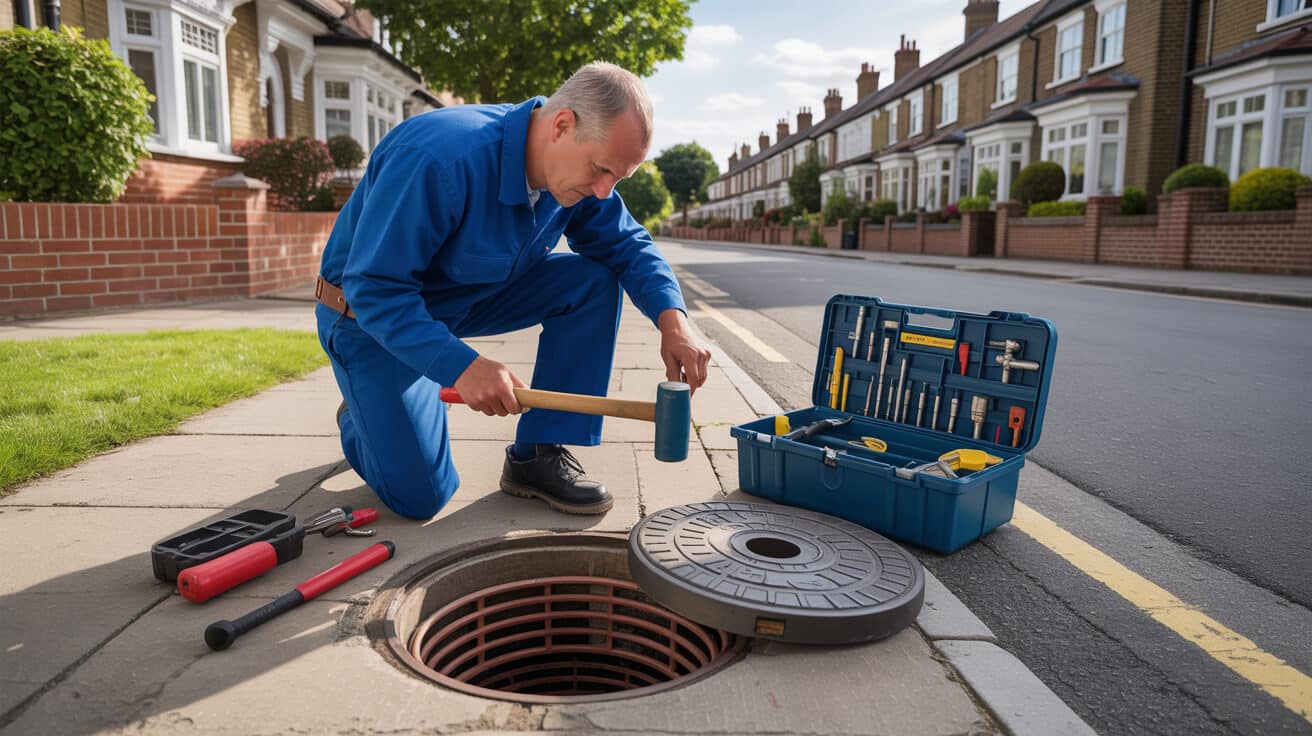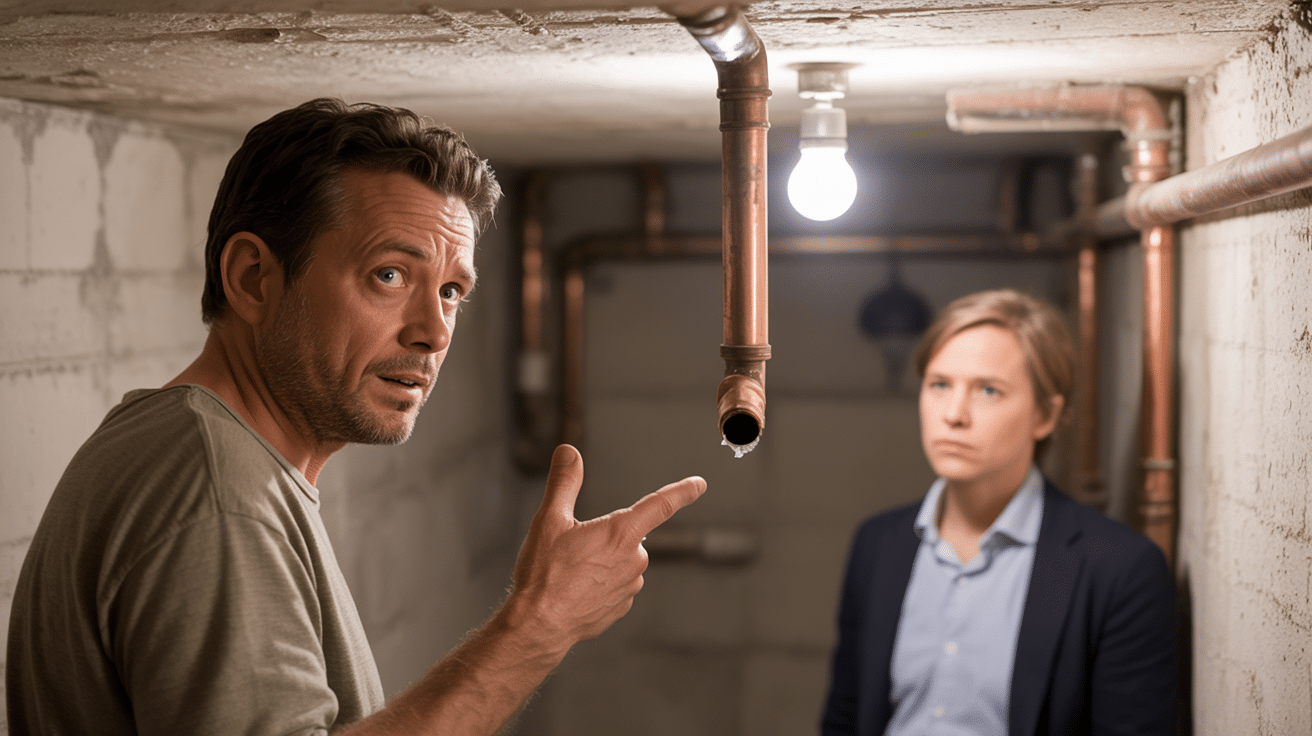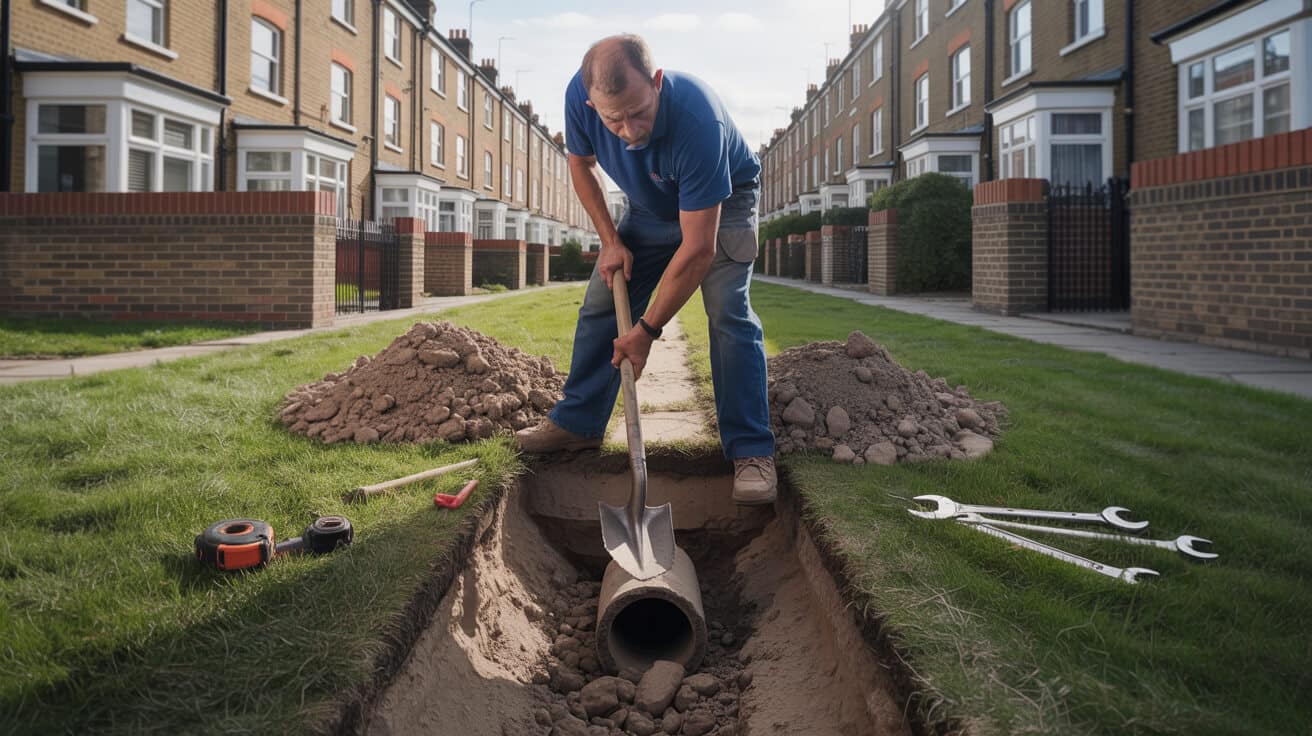 Pros and Cons of Combi, System and Regular Boilers
Pros and Cons of Combi, System and Regular Boilers

Which Boiler Type Truly Fits Your UK Property—Combi, System, or Regular?
Every property owner, landlord, managing agent, or facilities leader arrives at a crossroads eventually: what heating setup actually protects your investment, your occupants, and your sanity? Boiler choice isn’t just a tick-box job. It’s about preserving the comfort, safety, and running costs of every home, flat, or business space you own or oversee—even after the initial installation is a distant memory.
A boiler may be out of sight, but it’s *always* at the heart of your reputation as a property owner.
At Plumbers 4U, choosing between combi, system, or regular (heat-only) boilers starts and ends with one clear priority: fit the system to the property, not the marketing blurb. The right decision means fewer emergencies, better compliance with ever-tighter UK regulations, and a reputation for reliability that pays back in trust and property value. Here, we break it down in plain terms—how each boiler matches (or fights against) specific property types, tenants’ needs, and your long-term peace of mind, so you never get caught out by a “one size fits all” shortcut.
What Are the Key Differences Between Combi, System, and Regular Boilers—And Why Should You Care?

One boiler does not fit all, even if sales pitches try to make it sound simple. The real differences affect not just installation, but how reliably your property delivers hot water and warmth under real-world pressures—from early morning tenants to last-minute EPC inspections.
Combi Boilers: Space-Savers With Limitations
combi boilers heat water directly from the mains, producing hot water “on demand.” This is the standard for compact homes, city flats, and places where storage space is truly precious. These are wall-hung units: no loft tank, no cylinder, and typically a sharp turnaround on instal—ideal for minimising rental downtime.
Who wins with a combi? Studio flats, small terraced houses, or landlords turning over one-bed units where simplicity, tidy installations, and speed are priorities.
System Boilers: For Busy Homes and Small Commercial
System boilers combine the best of both worlds. They use a hot water cylinder, so more than one bath or shower can run without the tap running cold, and they don’t require a loft tank. The cylinder usually lives in an airing cupboard—think family homes, HMOs, or multi-bathroom properties where people’s routines overlap.
Where do systems shine? Families, professionals sharing, landlords with short-term lets, mid-sized offices—any place that juggles heavy or unpredictable hot water demand.
Regular (Heat-Only) Boilers: Built For Legacy Systems
Traditional, “regular” boilers (aka “heat-only” or “conventional”) power most UK period houses and older multi-storey properties. They use both a cylinder and a loft tank, taking the stress off low-pressure mains and serving more outlets at once. It’s a must for high-demand legacy properties or anywhere that can’t easily be re-plumbed for 21st-century layouts.
Best fits? Older houses with quirky plumbing, big commercial kitchens, or converted buildings where pipework revisions would run into the tens of thousands.
When the heating matches the property footprint and lifestyle, you’ll stop noticing it—except in lower bills and fewer callouts.
How Do These Choices Actually Play Out for Property Owners, Landlords, and Managers?

The reality of boiler selection emerges well after the installer leaves. Initial instal might go fast, but system mismatch creeps in slowly—through complaints, maintenance calls, or regulatory snags.
| Boiler Type | Space Needed | Multi-Tap Hot Water | Instal Disruption |
|---|---|---|---|
| Combi | Minimal | One tap/shower | Fast, least invasive |
| System | Cylinder | Multiple outlets | Moderate—cylinder instal |
| Regular | Loft+cylinder | Numerous/Buffered | Most—major retrofit if upgrading |
The free airing cupboard often gets overlooked until you’ve seen the storage options modern systems unlock.
Scenario 1: Space at a premium
Urban flats, converted studios, or rental blocks chasing every square foot opt for combis to eliminate tanks and pipes. Landlords appreciate fewer parts to freeze or leak.
Scenario 2: Morning traffic jams
Families, shared houses, or boutique hotels rely on system boilers to keep the hot water flowing even during the busiest bathroom rush.
Scenario 3: Large legacy sites
Older houses divided into bedsits, or commercial kitchens with persistent high draw, almost always stick to regular boilers for buffered supply and resilience—even if the system looks “old-fashioned” on paper.
Installation impact carries forward in subtle ways: downtime for tenants, reclaimable space, maintenance touchpoints, and even insurance risk. It rarely pays to choose the “cheapest to instal” if disruption and complaints start costing more in the following years.
What Are the Real-World Pros and Cons of Combi, System, and Regular Boilers?

Every boiler is a bundle of strengths and trade-offs—even when the sales pitch claims universal benefits. Here’s how each one stacks up, no spin.
Combi Boilers
Advantages
- Smallest footprint—*ideal for flats or homes where every metre matters*
- Rapid, low-mess installation; less disruption for tenants
- Hot water “on tap” with no wait or tank losses—*perfect for solo living or couples*
- Simple design: fewer parts equals fewer maintenance headaches
Disadvantages
- “One tap at a time”—*running multiple showers or appliances exposes its limit*
- Fully reliant on your property’s mains pressure—rural or Victorian buildings may suffer disappointing flow
- No backup: if the combi fails, everything stops instantly (no tank buffer)
- Not a match for properties with large families or multiple bathrooms
System Boilers
Advantages
- Handles busy mornings and overlap—multiple taps, no cold water battles
- No loft tanks—fewer freezing or leaks in winter, tidier installations
- Easy upgrades—*cylinders pair well with solar water or smart zoning controls*
Disadvantages
- Cylinder takes valuable cupboard or closet space
- More plumbing = higher initial and future repair cost
- Cylinder sizing is key; undersize it, and you’ll hit frustrating cold spells when guests stay
- Slightly higher upfront cost, but this may balance out long-term
Regular (Heat-Only) Boilers
Advantages
- Safest bet for legacy buildings—works with vast, quirky old pipe networks
- Total buffer: water always on tap, even if mains drops
- Practical for commercial setups or big buildings where everyone uses water at once
Disadvantages
- Loft tanks plus cylinders hog space—retrofitting can get invasive
- More pipework = more potential for leaks, inspector visits, and annual check obligations
- Often energy-inefficient unless paired with new controls and insulation
- Most expensive and disruptive to upgrade—especially if moving away from old setups
Maintenance-free simply doesn’t exist—every system (even combis) needs professional checks and annual records to remain compliant *and* reliable.
Is a Combi Boiler Really the Most Efficient Option for Most UK Properties?

Combis win the efficiency race for modern flats, micro-homes, and two-occupant properties with low to moderate usage. They heat only as needed, with no tank losses or standing draws. A well-fitted combi can shave off £100–£300 per year compared to classic tank-based setups (Which? 2024).
But “most efficient” only holds inside the right blueprint:
- Multi-bath setups?: The system boiler is king—sharing hot water across several rooms, if cylinders are sized and lagged right.
- Old or high-demand properties?: Regular boilers’ standing tanks ensure supply, but heat loss rises if insulation and controls are not modernised.
| Property | Best Fit | Running Costs | Storage Impact |
|---|---|---|---|
| Studio/flat | Combi | Lowest | Minimal |
| Family home | System | Moderate | Medium |
| Period/legacy | Regular | Higher, if unchanged | Substantial |
True efficiency hinges on matching the system to usage, controls, and property fabric—not just on boiler spec sheets.
Conversion is the cost variable: moving from a tank-based or conventional layout to a combi often means heavy pipe rerouting, tank removals, and hidden making good—which can double total outlay compared to a “like-for-like” swap.
What Are the Hidden Risks When a Boiler System Doesn’t Fit the Property?

Fail to match the boiler to real property needs, and you risk more than simple inconvenience:
- Pressure let-down: A combi feeding a building without solid mains supply is a recipe for cold taps and unhappy tenants.
- Legal slip: Installing an unvented cylinder without G3 certification? That’s a legal breach—*invalid insurance, rejected claims, and fines await*.
- Tenant churn or complaints: Busy houses running combis run into “there’s no hot water” reviews and rising repair calls—negative for any landlord.
- EPC/MEES non-compliance: Missing energy requirements post-upgrade leads to lettings blocks or invalid property listings.
- Warranty and insurance voids: DIY instals or uncertified fitters make policies worthless—and the responsibility lands with you.
Cutting corners on installation costs is like cheap insurance—it feels clever until the day it fails, and then it’s suddenly your problem.
The smart move: have your property’s pressure, flow, and demand audited by a certified team before starting. Upfront clarity prevents years of recurring headaches.
How Should Owners and Agents Match Boiler Types to UK Flats, Family Homes, and Commercial Properties?

A single answer doesn’t exist. Instead, tune your selection to the actual needs of property users and the building itself—not to what was cheapest or fittest “last time.”
For Flats, Studios, One-Beds
Combi boilers almost always suit; they keep space open, remove the risk of frozen tanks, and streamline tenant turnarounds.
For Family Homes, HMOs, Guest-Heavy Houses
A system boiler with an adequately sized hot water cylinder shares demand, works with scheduled heating controls, and adapts to growing hot water needs.
For Large, Older or Commercial Sites
Regular boilers and buffer tanks protect against pressure drops and mixed legacy plumbing. They also help for multi-zone, multi-tap setups where simultaneous demand peaks. They aren’t the “modern” answer, but safety, compliance, and operational stability sometimes demand it.
Hybrid approaches win in unique cases: pressure-boosted combis for big flats, dual-systems for phased renovations, or smart system boilers with zoning. Custom mapping always outperforms “package deal” instals.
The best heating system is the one your users *don’t think about*—because downtime and drama are never on the menu.
Are Boiler Upgrades as Simple as a Swap—or Do Legal and Hidden Costs Lurk?

Boiler swaps can be deceptively complex, especially when moving from one type to another (e.g., regular to combi). What sounds like a lift-and-shift job often balloons with hidden extras:
- Tank removal: Loft or cylinder tanks may need drain-down, safe disposal, and reinforcement checks—not to mention the remedial work after removal.
- Pipework changes: A combi may need entirely new, larger-diameter pipework, wall chasing, and patching—often ignored in headline quotes.
- Compliance paperwork: Installing or upgrading unvented hot water cylinders? G3 sign-off is mandatory, as is notifying Building Control.
- Restoration costs: Reinstating floors, tiling, or making good post-instal adds to the final bill.
- Missed compliance triggers: New instals can unexpectedly drop your property EPC rating without the right energy controls in place, particularly relevant for landlords.
Cheap upgrades rarely stay that way when regulatory backlogs, insurance claims, or repairs hit—clarity upfront is priceless.
Best practice: request a transparent, phase-by-phase quote covering every part of the job—from old unit strip-out to finish and full legal paperwork, including photo documentation.
What UK Laws, Regulations, and Codes Dictate Safe Boiler Installation?
In 2024, compliance isn’t optional—it’s strictly enforced and now directly linked to property value, rental eligibility, and even mortgage approval.
The Big Five Legal Checks:
- G3 (Unvented Hot Water): Any unvented cylinder must be installed and signed off by a G3-licenced engineer. Failure = no insurance, rejected claims, and potential fines.
- Part L (Energy Efficiency): Every new boiler must be an efficient, condensing model, and installations must observe set energy loss limits—now strictly monitored through EPCs *(Gov.uk, 2024)*.
- WRAS Approval: All pipework, controls, and tanks must use WRAS-accredited components. Anything less can invalidate your water supply safety.
- Gas Safe and WaterSafe: Only engineers with up-to-date registers can legally work on these systems. Always ask for ID—*the liability for poor work sits with YOU as the property owner or agent*.
- Landlord & Rental Rules: From EPC “E to C” upgrades to MEES and local council regulations, landlords face fines up to £30,000 for non-compliance *(Gov.uk MEES 2024)*.
Plumbers 4U engineers guarantee all legal steps are covered with documentation and photo evidence—meaning your investment and reputation are always shielded.
What’s the Decision Workflow that Removes Guesswork from Boiler Selection?
Eliminating guesswork isn’t complicated—it’s a disciplined, stepwise approach you should never skip, no matter the “deal” on offer.
- Audit demand and pressure: Don’t quote or survey until you know the real hot water needs and the property’s true supply pressure.
- Survey all existing systems: Map current pipework, find leaks or insulation gaps, and check what legacy quirks could impact performance.
- Future-proof the plan: Account for planned property changes, future upgrades (like smart controls), and rising EPC demands.
- Get documented, line-itemed quotes: Each phase, part, and requirement needs to be listed—no vague “estimates” or verbal promises.
- Lock down certificates and logs: Secure every mandatory sign-off, instal photo, and compliance document for insurance, resale, or rental scenarios.
A heating system designed and commissioned to standard is silent most days—but irreplaceable when things go wrong.
Speak to Plumbers 4U Today
If you value a heating system that just works—quietly, efficiently, and in full compliance—trust Plumbers 4U. Our WRAS, G3, and Gas Safe certified engineers listen first, explain every option, and deliver instals that protect your property, your tenants, and your reputation. Book a detailed boiler audit with Plumbers 4U and discover what true peace of mind feels like—because your property deserves nothing less, at every step.
Frequently Asked Questions
What overlooked property factors dictate boiler suitability for homeowners and landlords?
When picking a new boiler, it’s easy to fixate on brands, energy ratings, or upfront installation costs—but the features that quietly dictate success often live behind your walls and under your floorboards. Age and material of your pipework, main supply pressure, length of pipe runs, and the realities of your hot water use all shape which boiler type serves you best or becomes a recurring aggravation. For example, a high-efficiency combi might sound perfect on paper, but if your home sits in an older block with pressure dips at peak times, performance will underwhelm and warranty claims may fall short. System boilers shine where morning demand spikes—multiple showers, tenants, or school runs—while regular boilers remain the fallback for properties tied to legacy tanks, loft conversions, or heritage layouts. Skipping a detailed property survey pushes you closer to future leaks, tepid showers, or expensive post-instal corrections.
Long-term heating comfort begins where most buyers stop looking—behind walls and at daily routines.
How does everyday use translate into hidden property demands?
- Daily routines—school hours, tenant overlap, or shift work—cause intense but temporary demand surges.
- Period properties often hide vulnerable pipework, old-style tanks or awkward layouts that need bespoke planning.
- Modern flats may have glorious EPCs and pressure, but suffer if mains supply is split across units.
When do legacy features limit boiler choice?
- Original pipe runs and indirect cold water systems often restrict you to a regular boiler unless you repipe entire zones.
- Properties with attic tanks and convoluted plumbing layouts struggle with new high-pressure combis or system boilers.
A pressure test and usage mapping by a trusted professional unlocks true “fit” – not just what fits in the space. With Plumbers 4U, you get boiler selection based on behind-the-scenes pressure and flow tests, not just catalogue specs.
Why do real household routines often defeat “perfect” boiler choices on paper?
Theoretical boiler performance ratings skip over real-life chaos—family morning routines, holiday lets with twelve guests, or offices with “everyone wants hot coffee now” moments. A combi boiler excites many first-time buyers or investors for its compactness and rapid hot water. Yet, once guests pile in or families shower in sequence, combis show their pressure limitations fast. System boilers deliver stored hot water so even multi-bathroom homes get consistent delivery under load, at the cost of needing a dedicated cylinder and space. Regular boilers, with open-vented tanks, continue to make sense for properties that defy straightforward refurbs but come with requirements for thorough ongoing maintenance and space in the loft.
The costliest upgrade is buying for empty rooms, not lived-in mornings.
What telltale signs reveal your boiler is outmatched?
- Water temperature fluctuates whenever two taps are open.
- Showers start hot but fade as others join in.
- Hot water takes too long to reach an ensuite or remote sink, hinting at subpar design.
- Energy use creeps up, as the system overcompensates for unpredictable demands.
Table: Where each boiler wins—or flounders—in daily life
Everyday Scenario | Combi Boiler | System Boiler | Regular Boiler
—————————|————–|—————|—————
Single flat, one shower | Excels | Overkill | Unnecessary
Busy household, 3 baths | Underperforms| Excels | Works if legacy tank OK
Tenants, phased occupancy | May struggle | Handles surge | Needs space/maintenance
In practice, surveying your routines and planning for life’s “messy middle” makes the difference. Plumbers 4U brings usage-based planning, so the system fits you and not the other way around.
Why is mains water pressure crucial to boiler performance—and so rarely checked first?
Water pressure is the silent dealbreaker for combi and system boilers. Every winter, homeowners discover the limits of their system when showers trickle or heating lags—often because no one measured true, load-bearing pressure before upgrade. A top-brand combi simply can’t deliver to two bathrooms at once if the mains can’t keep up. Shared pipes in blocks of flats, rural supply lines, or unlisted workarounds from previous owners all risk leaving even new boilers underpowered and disappointing.
The difference between a dream upgrade and daily frustration is usually figured out with a 10-minute pressure test.
What pressure benchmarks matter for installers?
- Reliable flow rates during the morning or evening rush, not just mid-day lulls.
- Corroborating pressure readings against actual fixtures that will be used together.
- Confirming whether your building’s supply is shared or independently delivered.
Table: When boiler types buffer against pressure dips
Situation | Combi | System/Regular
———————————–|———–|—————
Single feed/split building mains | Fails fast| Stores a buffer
Rural or low-pressure areas | Underperforms| Shields from dips
Modern house, strong supply | Shines | Maintains comfort
Always insist on a dynamic, time-of-use pressure test before any quote is finalised. Plumbers 4U includes this assessment as standard, ensuring the system is built for your street, not just your address.
What compliance oversights and documentation habits turn boiler upgrades into future risks?
In the UK, a boiler is never just “plug and play.” Current standards require every installer to carry Gas Safe registration (for gas) and G3 (for unvented hot water), with WRAS approval stamped on all water-facing components. Yet, it’s the paperwork generated during and after instal—benchmark logs, digital photo records, part IDs, and user cards—that sustains your warranty, unlocks insurance, or smoothes a resale. Losing a single document can shut down future claims or freeze a property transaction. For landlords and agents, a missing CP12 or incomplete work statement is a sudden headache just when you need compliance proof.
Paperwork isn’t the last stop, it’s your ticket to repairs, claims, and resale with zero grief.
What distinguishes true compliance from token efforts?
- G3 certificate issued, recorded, and stored against the property address.
- Gas Safe engineer name and ID appearing on all new gas appliance installations.
- Every new valve, stat, or mixer backed by a WRAS approval number and digitally filed.
What can regular property managers do today?
- Schedule annual digital compliance audits tied to each property.
- Keep documentation in “cloud” or asset-linked systems, not with the departing tenant.
Partnering with Plumbers 4U guarantees you leave every job with a digital compliance pack—protecting value, safety, and peace of mind for years.
How do boiler swaps trigger hidden disruption, and what can you do to contain chaos?
Swapping from a regular (“conventional”) boiler to a combi or system is like an iceberg: 90% of the complexity is beneath the surface. Attic tanks need safe disposal, pipework sometimes must be exposed and moved, and insulation or zoning updates might be needed for regulations or efficiency. Tenanted or occupied properties especially can’t afford surprises—work must be staged to avoid business hours or school runs. Costs also balloon when surveyors miss aged pipework, broken isolation valves, or the requirement to re-site a cylinder for Building Regs.
If a quote doesn’t show downtime, staged commissioning, and scope for nasty surprises, it’s not worth its paper.
How to demand transparency in your boiler upgrade?
- Require a written, staged workplan—showing removal/disposal, mains isolation, component upgrades (with part codes), and precise timing.
- Seek scope lists that name every compliance measure (e.g., new TPRV, insulation, smart control setup).
- Ensure pricing is broken out for steps, not just an all-in figure.
Table: Hidden factors that most often blow budgets
Missed Element | Typical Cost Impact | Disruption Risk
————————-|———————|—————–
Old pipe reroutes | +25-40% | Walls/floors open
Cylinder or tank removal | +10-20% | Loft/ceiling patching
Controls/wiring upgrade | +8-15% | Room downtime
Staged work for tenants | +variable | Multiple short visits
A well-planned, stepwise approach—like that from Plumbers 4U—prevents all the above. Evidence-based quoting, timing phase for real user routines, and total legal documentation are gold-standard today.
What stepwise process future-proofs any boiler installation—protecting comfort, compliance, and value?
No successful installation happens “by gut feel.” The modern approach uses sequential, validated steps to eliminate failure points and future emergencies. First comes a tailored survey—mapping your use pulses (morning, evening, guest periods) and dynamic pressure readings. Next is the audit: pipe age, insulation, tank layout, historic problem hotspots. After that, clear project staging—safe system drain-down, removal, fresh instal with part-verified components, and phased commissioning (especially for occupied homes or commercial spaces). Compliance must be locked at every phase: nothing skips G3, Gas Safe, WRAS, or MEES/EPC evidence. The job only closes out after a demonstrable run-through and a digital document pack—making warranties, resales, and insurance claims frictionless.
Systems built for your next decade are always documented from day one.
What’s in every resilient boiler installation protocol?
- Dynamic audit of demand, supply, and building quirks—factoring in both current and projected occupancy.
- Explicit records for every sign-off, from Gas Safe to WRAS to EPC status.
- Digital storage and handover of all certificates, photos, logbooks, and future service intervals.
- Tailored walk-throughs so owners, tenants, or facilities leads know what’s been done and where to go next.
Engage with Plumbers 4U and instal knowing every choice is mapped for the long haul, every risk tracked, every investment protected. Reliable heating, clear documentation, and peace of mind—baked in, every step.



